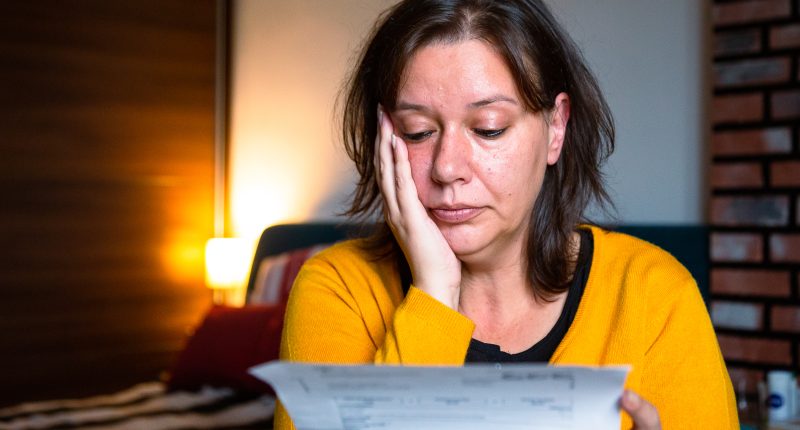MILLIONS suffering from long-term health conditions or disabilities get extra help through Personal Independence Payment (PIP).
The payments can be worth as much as £172.75 a week, so if you don’t claim it already, it could be a good idea to check if you’re eligible.
PIP is available to those aged 16 or over but have not yet reached the state pension age.
Crucially, you must also have a health condition or disability where you either have had difficulties with daily living or getting around – or both- for three months.
You should also expect these difficulties to continue for at least nine months (unless you’re terminally ill with less than 12 months to live).
But even if you’ve got an active claim for PIP, there are some scenarios where they can be stopped.
Read more in money
Tom Farquhar, benefits information specialist at disability charity Scope, has shed light on four of them.
He said: “When it comes to your PIP there are certain changes that you might need to report to stop your benefit being cut off by the DWP.
“There are risks associated with not reporting a change in your situation, including overpayment or even prosecution.
“That’s why it’s important to report the following changes to DWP as soon as possible.”
Most read in Money
Going into hospital
If you have to go into hospital for more than 28 days, the Department for Work and Pensions (DWP) will pause your PIP.
However, if you are under 18 or paying for a private hospital stay, payments won’t be stopped.
It’s worth noting if you leave the hospital before the 28 days is up, you can still have payments stopped if you go back.
Tom said: “If you go back to hospital within 28 days of leaving, it will count as the same stay and add up.”
As an example, someone might go to hospital for 20 days and then go home.
After 10 days at home, they might go back into hospital.
The DWP would stop paying this person PIP if they were in hospital for more than eight days.
The same 28-day rule applies if you go into a care home.
Again, if you are paying for the care home privately this rule won’t affect you.
Going to prison
The DWP will stop PIP payments if you are in prison or held in custody for 28 days or longer.
Once you are no longer in prison or custody it is your responsibility to contact the DWP and tell them you are out.
Tom said: “Once you are no longer in prison or custody you’ll need to contact the them and they’ll start payments up again.”
You go abroad
If you leave England, Scotland or Wales, for more than 13 weeks the DWP will stop any PIP payments.
If you leave these same countries because you need medical treatment, you have longer until you stop receiving payments.
Tom said: “If you leave Great Britain for longer than 13 weeks, or 26 weeks if you go for medical treatment, the DWP will stop your PIP payment.”
Your personal circumstances change
If your personal details change, such as name or address, or your doctor changes you could see PIP payments stop.
So you should tell the DWP as soon as possible about any changes to avoid this.
Any changes to your personal circumstances might impact what elements of PIP you can receive too.
Tom said: “It’s important to report these changes so that you can get the correct amount of PIP for your needs, and to avoid being cut off or prosecution for not relaying updates.”
You can update the DWP on any change in circumstances via their enquiry line – 0800 121 4433.
If your PIP payments have stopped and you don’t know why, you can call Scope for help on 0808 800 3333.
The helpline is open seven days a week, Monday to Friday between 9am and 6pm, and 10am to 6pm at the weekends.
Alternatively, you can email [email protected].
What is PIP?
PIP is a benefit given to people suffering from a long-term physical or mental health condition or disability.
This condition might make it hard for you to carry out certain everyday tasks or get around.
You can get the benefit even if you’re working, have savings or are getting most other benefits.
There are two parts to PIP – the daily living part and the mobility part.
You might be entitled to the daily living part of PIP if you need help with:
- Eating, drinking or preparing food
- Washing, bathing and using the toilet
- Dressing and undressing
- Reading and communicating
- Managing your medicines or treatments
- Making decisions about money
- Socialising and being around other people
You might be entitled to the mobility part if you need help with:
- Working out a route and following it
- Physically moving around
- Leaving your home
PIP is made up of two parts and whether you get one or both of these depends on how severely your condition affects you.
How much you get also depends on how your condition affects you.
You may get the mobility part of PIP if you need help going out or moving around. The weekly rate for this is either £26.90 or £71.
While on the daily living part of PIP, the weekly rate is either £68.10 or £101.75 – and you could get both elements, so up to £172.75 in total.
You’ll be assessed by a health professional to work out the level of help you can get and your rate will be regularly reviewed to make sure you’re getting the right support.
Who is eligible?
PIP is available to people aged 16 or over but not yet at the state pension age.
You must have lived in England or Wales for at least two of the last three years, and be in one of these countries when you apply.
The process is different in Northern Ireland, and there are additional rules if you live abroad or if you’re not a British citizen.
In Scotland, you will need to apply for Adult Disability Payment (ADP) instead.
Crucially, you must also have a health condition or disability where you either have had difficulties with daily living or getting around (or both) for three months, and you expect these difficulties to continue for at least nine months (unless you’re terminally ill with less than six months to live).
You can claim PIP at the same time as other benefits, except the armed forces independence payment.
READ MORE SUN STORIES
If you receive constant attendance allowance you will receive less of the daily living part of PIP.
If you get war pensioners‘ mobility supplement you will not get the mobility part of PIP.
Do you have a money problem that needs sorting? Get in touch by emailing [email protected].
You can also join our new Sun Money Facebook group to share stories and tips and engage with the consumer team and other group members.









